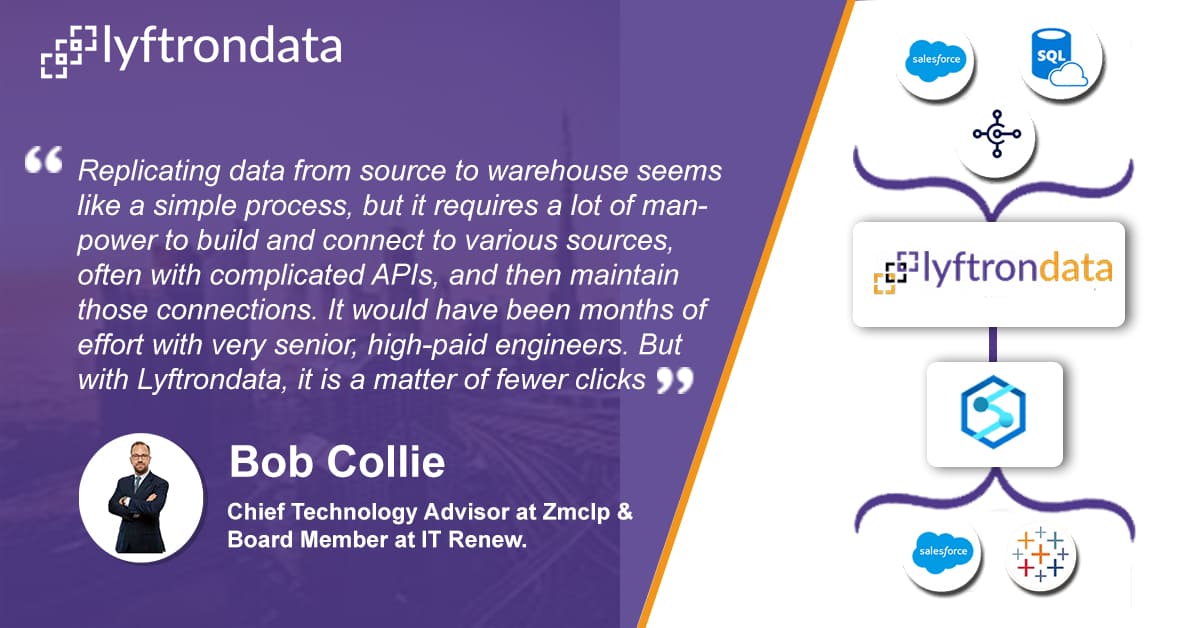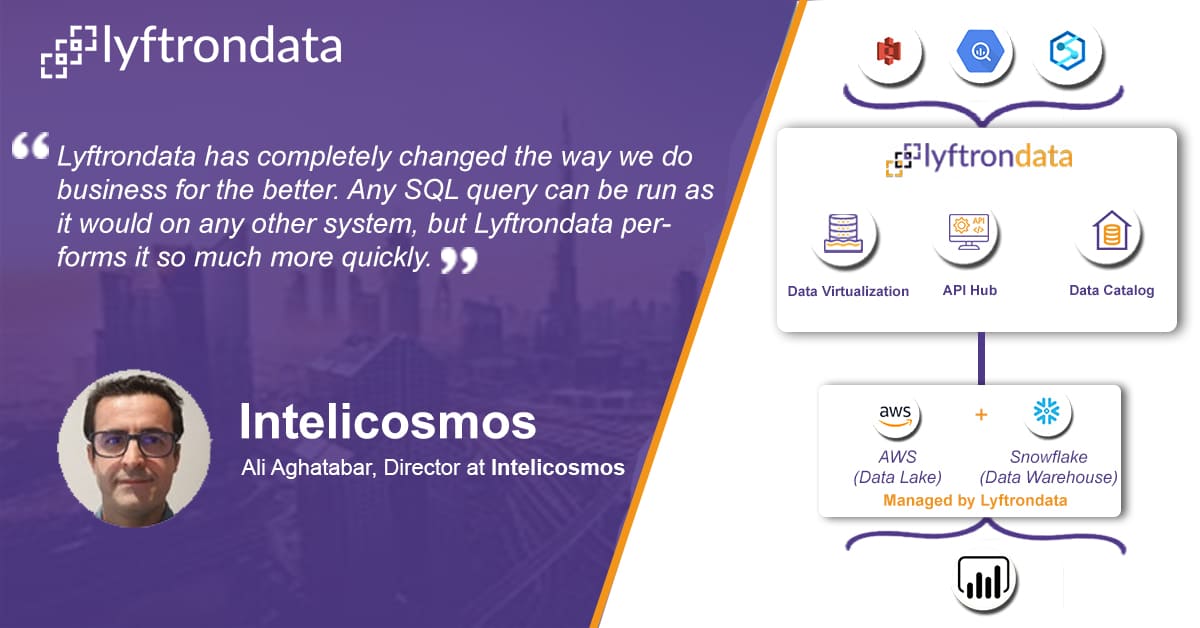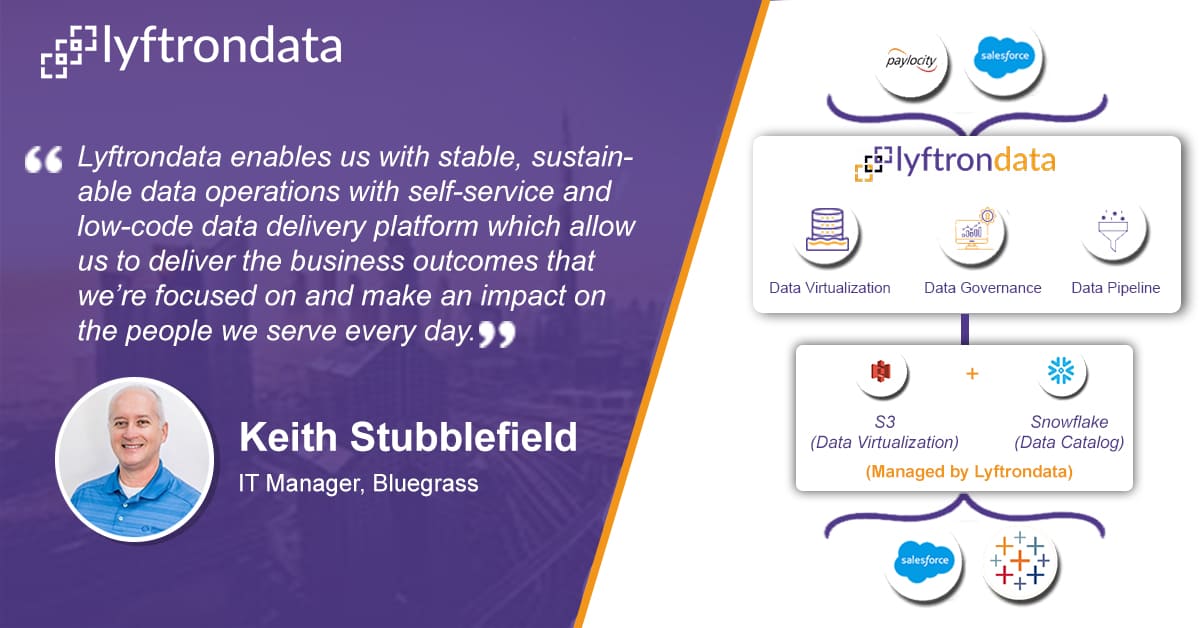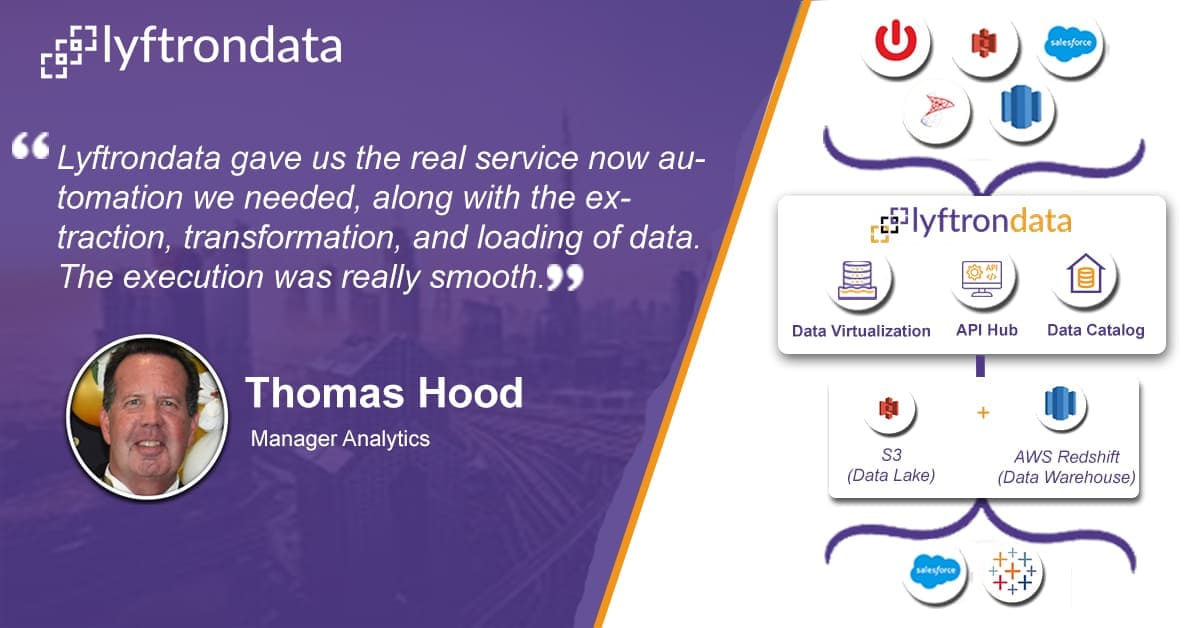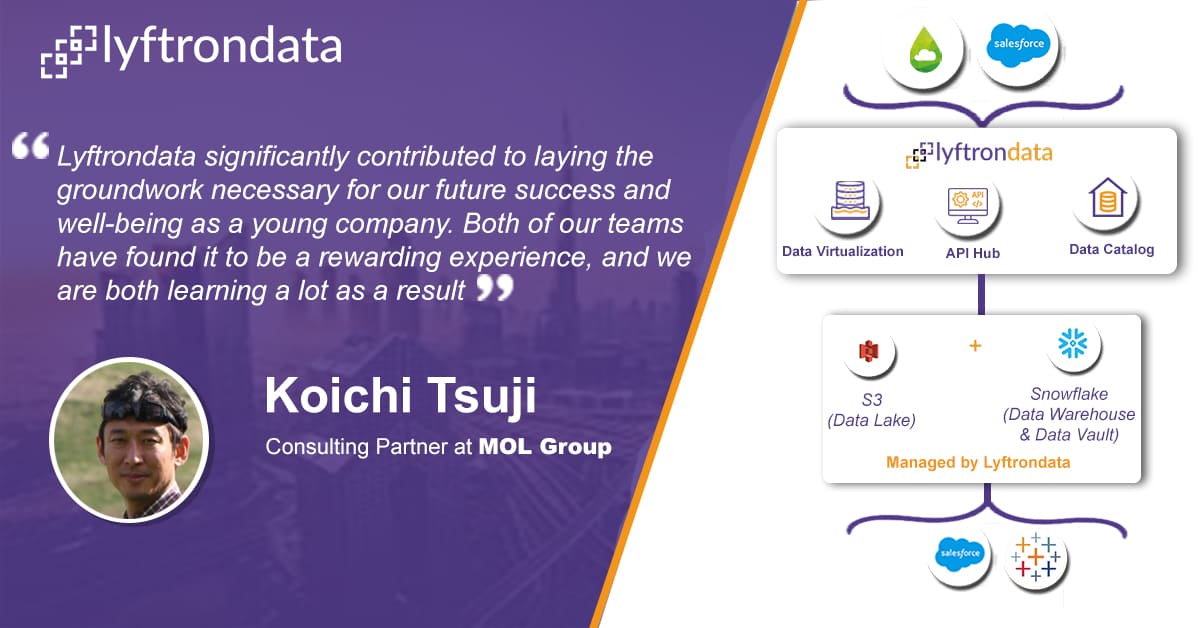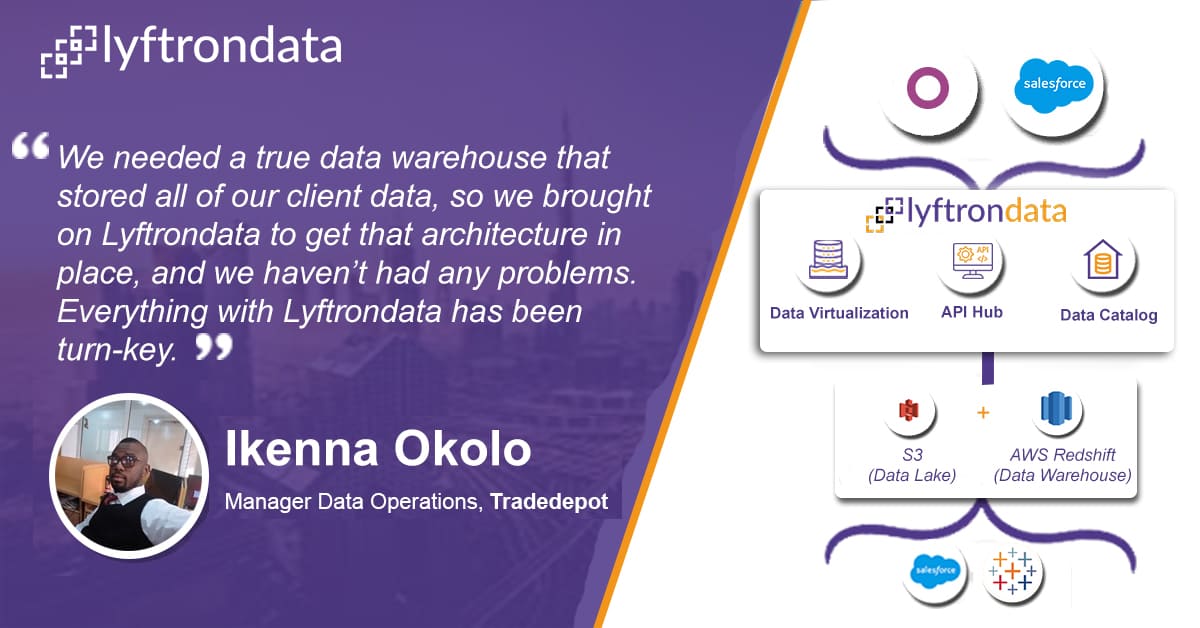200X Acceleration at
1/10th of the cost
Zero
maintenance
No credit card
required
Zero coding
infrastructure
Multi-level
security
Simplify Wasabi integration in
4 simple steps
Create connections
between Wasabi and targets.
Prepare pipeline
between Wasabi and targets by selecting tables in bulk.
Create a workflow
and schedule it to kickstart the migration.
Share your data
with third-party platforms over API Hub

Why choose Lyftrondata for Wasabi Integration?
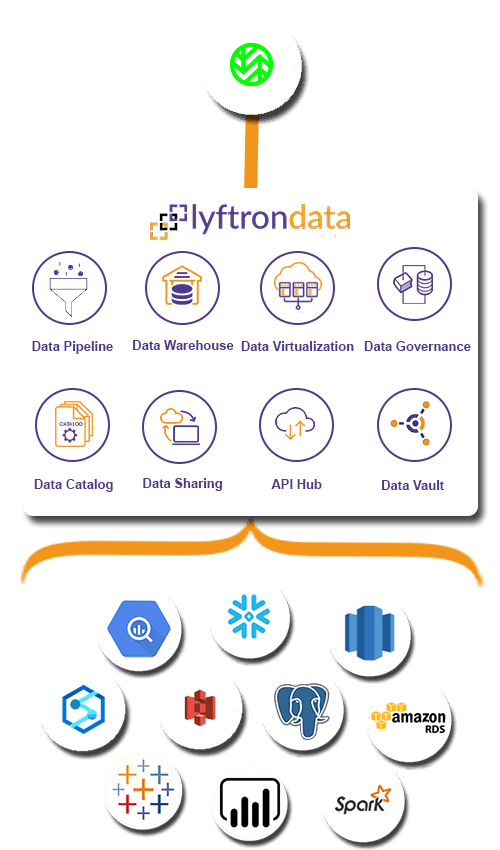

Simplicity
Build your Wasabi pipeline and experience unparalleled data performance with zero training.

Robust Security
Load your Wasabi data to targets with end-to-end encryption and security.

Accelerated ROI
Rely on the cost-effective environment to ensure your drive maximum ROI.

Customer's Metrics
Track the engagement of your customers across different channels like email, website, chat, and more.

Improved Productivity
Measure the performance of your team and highlight areas of improvement.

360-degree Customer View
Join different data touch points and deliver personalized customer experience.
Hassle-free Wasabi integration to the platforms of your choice
Migrate your Wasabi data to the leading cloud data warehouses, BI tools, databases or Machine Learning platforms without writing any code.
Hear how Lyftrondata helped accelerate the data journey of our customers
FAQs
What is Wasabi?
Wasabi is a cloud storage service provider that offers low-cost, high-performance, and scalable cloud storage solutions. It is positioned as an alternative to more established cloud storage services like Amazon S3, Google Cloud Storage, and Microsoft Azure, with a focus on simplicity, cost-efficiency, and security.
What are the features of Wasabi?
Low Cost:
Wasabi offers significantly lower pricing compared to competitors, charging a flat fee for storage without additional charges for egress or API requests. This makes it a cost-effective option for users who need to store large amounts of data and frequently access or transfer it.
Security::
Wasabi provides strong security features, including encryption at rest and in transit. It also supports immutable buckets, meaning once data is written, it cannot be altered or deleted, which is critical for regulatory compliance and ransomware protection.
High Performance:
Wasabi claims to offer fast performance for both data read and write operations, with speeds comparable to or better than other leading cloud storage providers. This makes it suitable for a wide range of use cases, from backups and archiving to more performance-critical applications like media streaming or analytics.
Scalability:
The platform is designed to handle massive amounts of data, allowing users to scale up or down depending on their needs. There is no minimum storage requirement, making it flexible for both small and large organizations.
What are the shortcomings of Wasabi?
Limited Range of Services:
Storage-Only Focus: Wasabi is primarily focused on cloud storage. It does not offer the wide variety of cloud services available from providers like AWS, Google Cloud, or Azure, which include compute, databases, machine learning, and serverless technologies. This limits its appeal for organizations looking for a more comprehensive cloud ecosystem.
Limited Ecosystem and Integrations:
Fewer Native Integrations: Wasabi, while compatible with Amazon S3 APIs, does not offer as wide a range of native integrations and services as AWS, Google Cloud, or Azure. Users relying on a rich cloud ecosystem for tools like analytics, AI, IoT, or DevOps may find Wasabi's offerings limited.
Third-Party Tool Reliance: While it supports a number of third-party tools, it lacks the vast ecosystem of services and plugins that come with other cloud providers, which can limit its flexibility for complex, multi-service architectures.
Limited Advanced Security Features:
Fewer Security Features: While Wasabi offers encryption at rest and in transit, it does not provide the advanced security features found in larger platforms, such as AI-driven threat detection, deep compliance audit tools, or enhanced identity and access management (IAM) systems that are available in larger cloud ecosystems.
Make smarter decisions and grow your sales with Lyftrondata Wasabi integration





